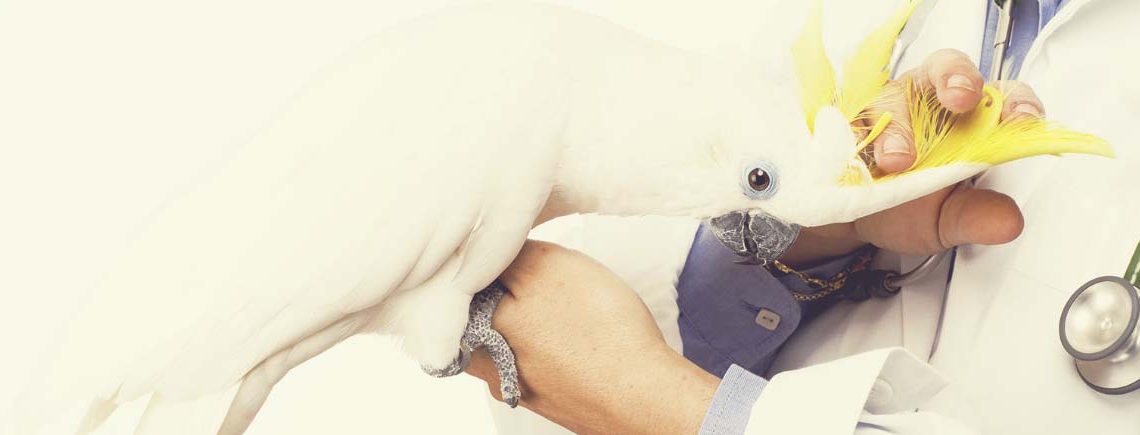Does My Pet Bird Need a Vet?
Like all pets, there are certain illnesses or healthcare problems pet birds are susceptible to. Some may go away on their own or be cured with some at home remedies, but others will require immediate veterinary care. Many vets don’t treat pet birds in depth as they differ from other animals that they have specialised in; although they may treat him for general care, you should conduct research into local veterinarians that may specialise in bird care.
In this blog post, we will explain different healthcare issues your bird may experience, how to find an avian veterinarian and the best ways to help prevent illness.
Healthcare Issues in Birds
If you notice any of these healthcare issues in your pet bird, it is important they are taken to see a veterinarian right away. It is important that they see someone who can treat your bird efficiently and properly, especially if the healthcare issue they are experiencing requires a more in depth examination.
1.Obesity
Obesity is an issue encountered with all pet birds. It can stem from poor diet and not enough exercise. To counteract this, make sure your bird is on a varied and healthy diet of formulated bird mixes, fruit, vegetables, and seeds, and is getting plenty of exercise and supervised out-of-cage time.
2. Poor Feather Quality
If you notice your bird with tattered or dull feathers, this could be a sign of a health issue. Bald patches may also appear and you may notice stress bars. Your bird could be suffering from allergies, skin irritation, baldness or cysts. Ensure your bird is getting plenty of exercise and a healthy, balanced diet each day, and that he has plenty of room in his cage.

3. Lack of Appetite
If you’ve recently adopted a pet bird, they could still be getting used to their new home and could take a few days to settle in, resulting in a lack of interest in food. All the new sights, smells and sounds could be threatening for your bird, so give it some time before they warm up. If your bird has randomly stopped eating his food for no apparent reason, it could be the sign of a more serious underlying condition. Take them to your local vet, one that specialises in exotic pets/pet birds if possible. Depending on what other symptoms your bird is experiencing, a faecal and/or blood test may be carried out to determine if parasites or other infections are the issue.
4. Discharge from eyes, nose, mouth
Sneezing is normal in birds, but if you notice frequent sneezing/discharge from the nose or mouth, it could be a symptom of something more serious, such as a respiratory disease.
If you notice discharge from the eyes or squinting, increased blinking, swollen eye lids or a cloudy cornea, be sure to bring your bird to the vet for medical attention. It could be parasites, a virus, poor hygienic conditions, ulcers or an environmental toxin exposure (such as smoke from cigarettes or other airborne toxins).

Finding an Avian Veterinarian
Finding a vet that is experienced and comfortable dealing with pet birds and building a relationship over the course of your bird’s life will help guarantee your pet is receiving the best possible treatment should they ever fall ill.
We suggest searching for an avian vet online as well as asking other bird owners on online forums who they recommend. Be prepared to travel, especially if you live in a small or rural town; you’re more likely to find veterinary hospitals with bird specialists in bigger cities.
When taking your pet bird to the vet for the first time, they will inspect their weight, appearance of droppings, behaviour, how they’re breathing, eyes, beak, feet, mouth, and feathers. If your pet bird is suffering from some kind of illness, it is always good to catch signs early to help get them the treatment they need.
Preventing Illness in Birds
- Make sure they are fed a balanced and well rounded, suitable diet, specialised for their species. For more on feeding birds, see our blog post here.
- Give your bird some chew toys. The constant chewing and pecking of their toys will naturally wear down their beaks, preventing an overgrown beak. Check out our range of bird toys
- Both internal parasites such as intestinal worms and external parasites such as lice and mites can affect your pet bird. We recommend consulting with your vet directly for more information about parasite control in pet birds.
- Make sure your bird is getting plenty of exercise and out of cage time to prevent obesity and boredom, both of which can cause a huge amount of stress on birds.
- Conduct your own regular health checks- If you notice any of the signs below, we recommend consulting with your vet right away.
- Feather Loss/Bald Patches
- Biting
- Screaming
- Lethargy
- Heavy breathing
- Lack of appetite
- Lack of interest in toys
- Sitting at bottom of cage
- Change in colour or consistency in droppings

